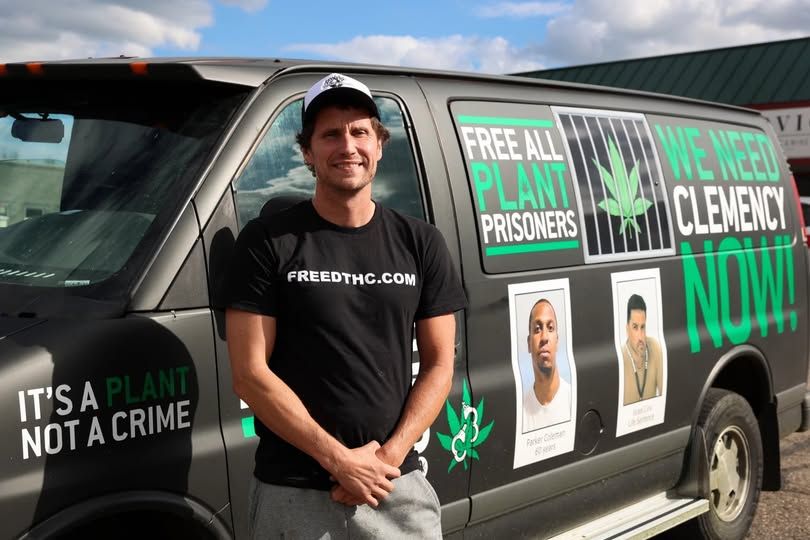Minnesota Cannabis Update with Travis Cullen Jan 6 2025

ROCHESTER — On Dec. 11, 2024, when the Minnesota Office of Cannabis Management announced it was going back to the drawing board to grant retail cannabis sale licenses, there were mixed feelings in Southeast Minnesota.
The delay has given two hopeful retailers in the region a second chance.
Travis Cullen, owner of Laughing Waters THC Glass & Smoke Shop in Rochester, said he was on the outside looking in until the state hit the reset button. While he’d qualified under the social equity provision of the application process, his application was eventually not approved for the original planned license lottery scheduled for Nov. 26, 2024.
Like many hopeful marijuana retailers, he saw his chance to legally sell marijuana going up in smoke.
Then a cadre of others who did not make the final cut sued the state, claiming the application and lottery process was unfair. That is when the state decided to revamp the process to include not just social equity applications — those with prior cannabis convictions, people from areas of poverty, veterans and others related to those groups — but general applicants as well.
Cullen did not join the lawsuit. As an activist for marijuana legalization and clemency for those still serving prison time on drug charges — he spent eight years in federal prison for selling 700 pounds of pot — he doesn’t want to stop the process.
Still, Cullen said the bigger problem was out-of-state applicants filling all the spots, leaving in-state merchants holding the empty baggies.
“I think at the end of the day there were too many people like me that were not out-of-state bad actors who were left out, and the OCM said we’ll slow this down a little bit and do a general lottery,” Cullen said. “I think they made the right decision.”
In the meantime, Cullen continues to sell low-dose edible products — though he admits that business alone won’t sustain him — along with pot paraphernalia, cannabis merchandise such as T-shirts, and vape products.
Not everyone is surviving the delay.
Lee Schweisberger has had to close his High Valley low-dose edibles shop in Wabasha while the state drags out the process.
Schweisberger, who back in September said he’d opened his shop with the hopes of turning it into a full marijuana shop once the new year came, said his business has not afforded him the luxury of keeping the doors open.
“I’d love to pay taxes,” he said, adding that while the state kicks the can, the black market in marijuana sales continues in Minnesota. “I’d love to be not seen as being a drug dealer.”
Putting a formal market infrastructure into place, he said, means testing, standards and both quality and consistency for consumers. The longer Minnesota waits, the longer it hurts pot smokers.
“We’re really into trying to do the best for weed, for consumers,” Schweisberger said.
He said he felt devastated by the Dec. 11 announcement from the state’s cannabis office.
The good news, he said, is like Cullen, he was eliminated from the lottery despite being fully qualified under the social equity guidelines. So there’s hope his shop might one day reopen as a full marijuana shop.
Also like Cullen, he points to a flood of out-of-state and even out-of-country applicants taking over the process and squeezing out the small shop owners who are from Minnesota.
“One (foreign) guy put in 33 applications, and 15 got through,” he said. “Another one was from Dubai.”
Cullen said in the meantime, smoking marijuana is legal. And anyone who wants it can always grow their own.
“You can grow in your house eight plants, and you can produce a pound per plant,” he said.
In the meantime, Cullen said he’ll enjoy following the new guidelines and deadlines for getting his retail license. The window for social equity applications is Jan. 15-30, 2025. The general license application window then runs from Feb. 18 through March 14. And the lottery for licenses will take place sometime in May or June.
Cullen said the state was trying to do too much too quickly at first.
“They were building an airplane as they’re flying it,” he said. And there are plenty of cautionary tales from other states that did the same. “Look at Kentucky. Every medical license went to out-of-state companies.”